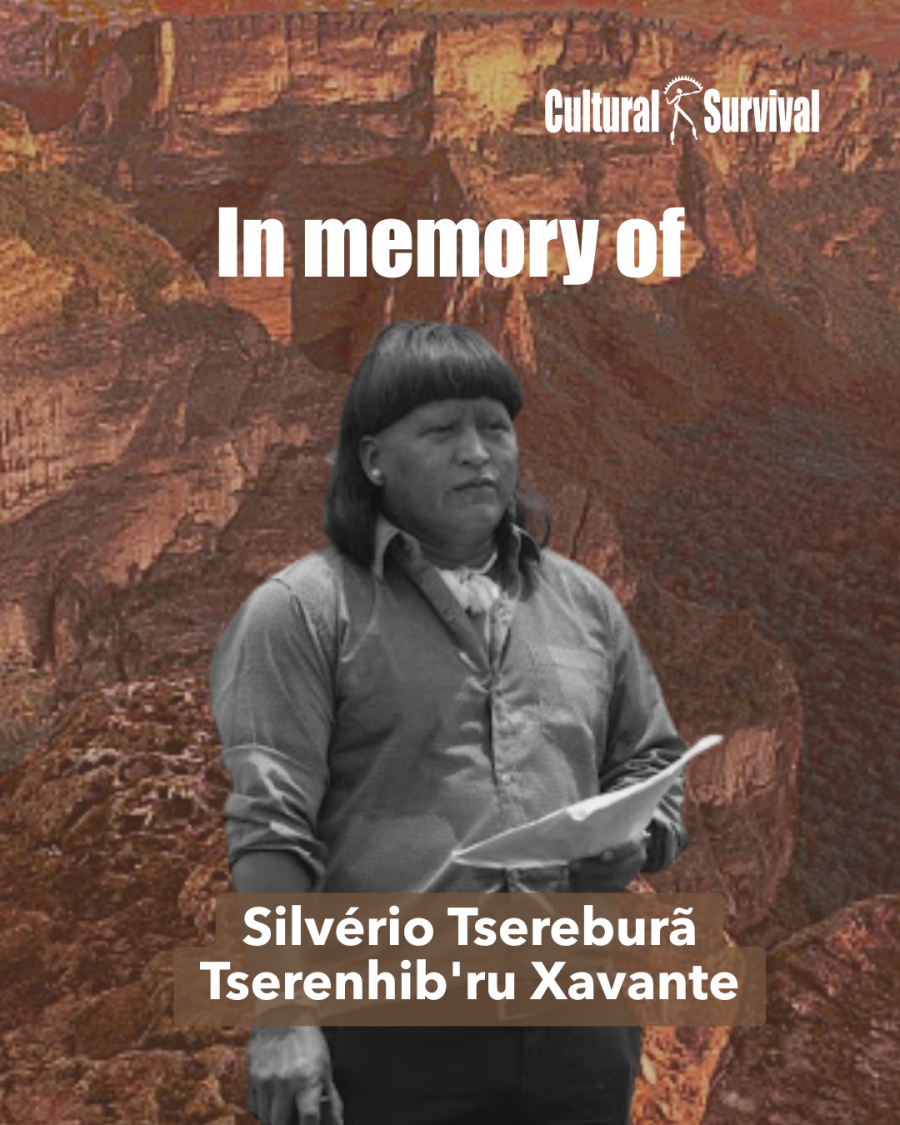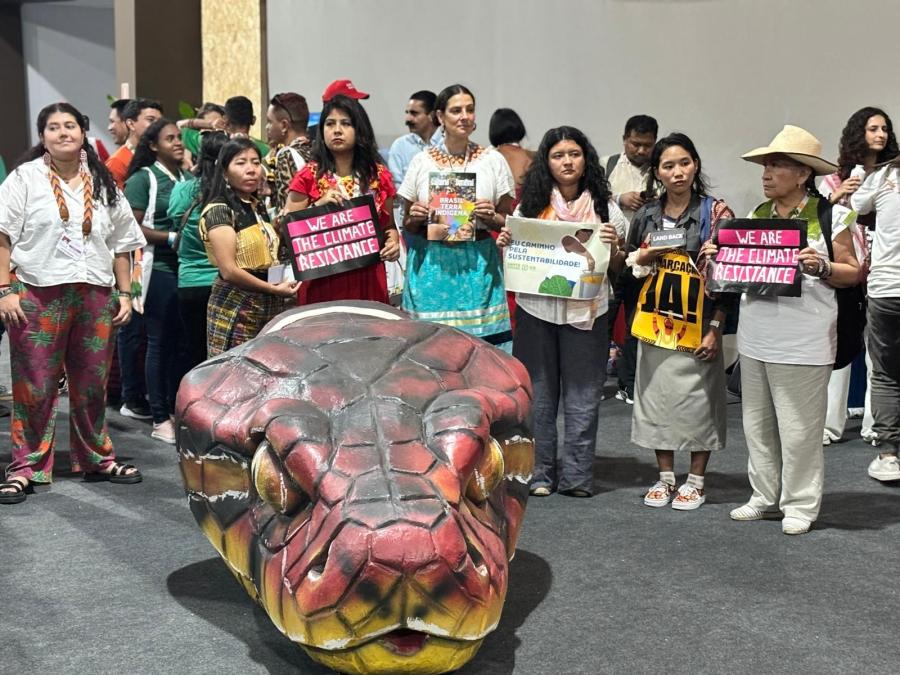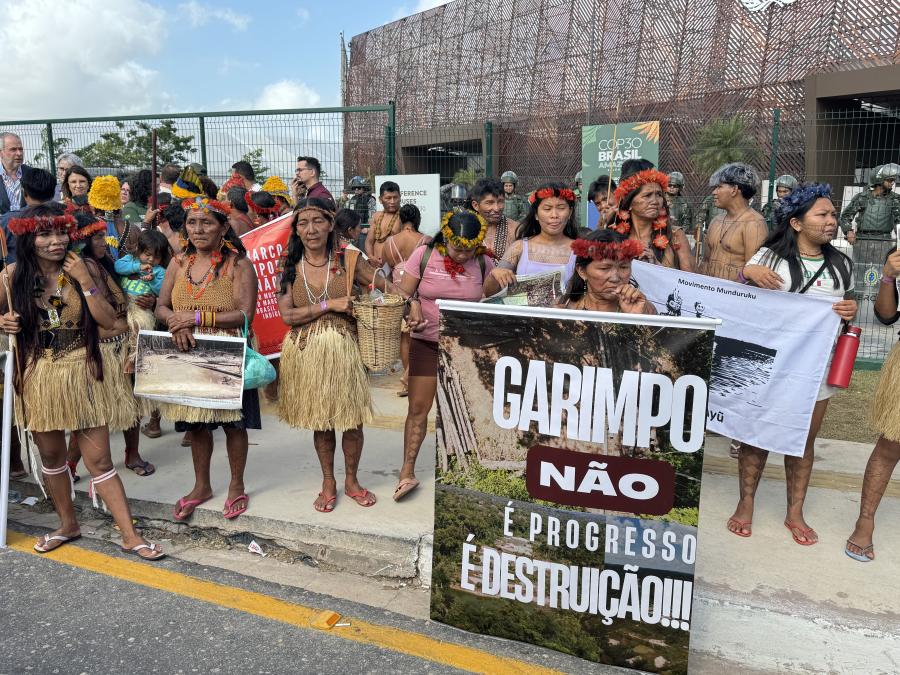
February 21 is International Mother Language Day. It was first proclaimed in 1952 as "Language Movement Day" by Dhaka University students in Bangladesh (formerly East Pakistan) who protested the suppression of their Bengali language. Police and military forces opened fire, killing many young people in attendance.
Cultural Survival supports and promotes place-based, Indigenous-controlled community media and language revitalization efforts aimed at creating new generations of fluent speakers. Indigenous Peoples are estimated to speak more than 4,000 different languages. At least 43 percent of the estimated 7,000 languages spoken in the world are endangered, and so many of these languages hold Traditional Knowledge and the solutions for how we care for our environments. We work to address this crisis and partner locally and internationally to reverse Indigenous language loss through our Indigenous Led-Funds, our Indigenous Community Media Program, our Indigenous Rights Radio Program, and our Indigenous Youth Fellowships.
We would like to introduce you to one of our Youth Fellows working to strengthen Indigenous languages. Jama Wapichana (Wapichana) is a 26-year-old woman from Brazil, currently residing in the state of Roraima. She graduated in indigenous territorial management with a focus on Amazonian intangible heritage and indigenous languages, with a master's degree in Indigenous Literature. She is the coordinator of a collective fellowship “Wapichana Indigenous Literature and Inclusion Project.” She is a writer, scriptwriter, researcher in Indigenous languages and cultures, and a proud daughter of a renowned storyteller and fisherman. Jama holds a master's degree in Literature from the Federal University of Roraima with a focus on Indigenous Literature and specializes in Economic Justice Advocacy for Indigenous women in America. She serves as an advisor and volunteer with the “Escola Comum” organization and is a member of the Pró-líder Program, one of Brazil's largest public leadership training programs. She has also participated in the research for the Netflix film "Ricos de Amor 2", as well as "The Second Act," a Netflix screenwriting acceleration program for black and Indigenous People.

As the recipient of a 2023 Cultural Survival Indigenous Youth Fellowship, Jama’s collective included five other fellows; Lizlyn Peres de Almeida, (Wapichana), who has a degree in Libras Literature with a research focus on Translation in Indigenous Narratives and is currently an advisor to the Cultural Association of the Indigenous People of Roraima, James Charly Perry (Wapichana), storyteller and writer, Joice Alberto de Souza (Wapichana) teacher, interpreter and translator. Together they coordinated the Wapichana Indigenous Literature and Inclusion Project, which aims to disseminate Wapichana literature by transforming it into inclusive material for deaf people in Brazilian sign language, enabling them to learn about the stories of Indigenous Peoples.
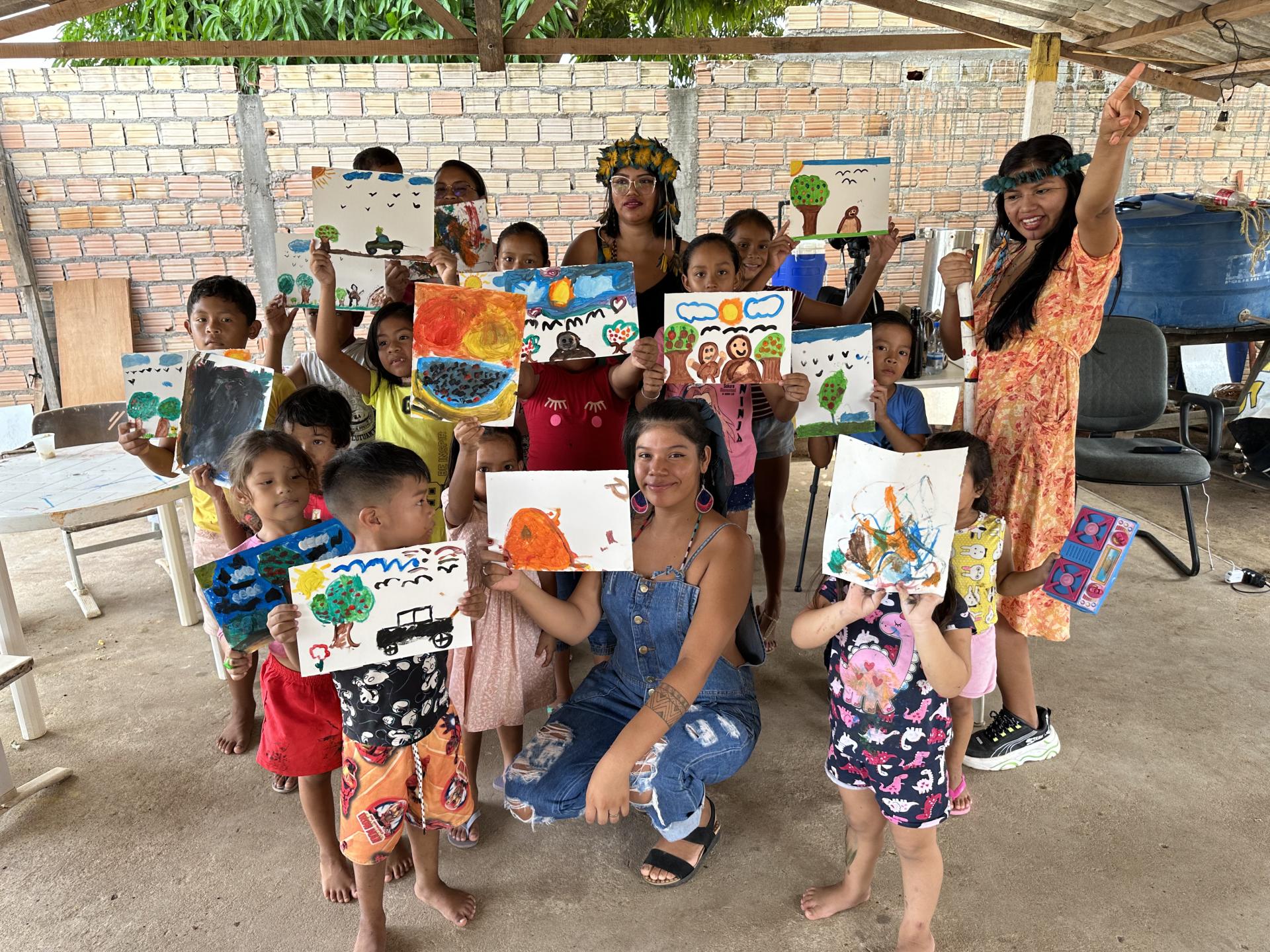
The literature focus of this project was the seven original stories from the book "Narrativa Do Wapichana" by James Perry. Thanks to a team of Indigenous professionals, writers, translators, and storytellers (who play an important role in Wapichana culture), and Wapichana’s fellowship, the storybook was finalized in four languages. Children's stories in the Wapichana language were translated into English and Portuguese and finally into libras (Brazilian sign language).
Following the translation, images, and videos of the stories were created. The visual content was finally edited into a 14-minute film that brought a collaboration of several people, including a photographer and artistic director, a storyteller, a translator-interpreter, artists Alcione Peres and Gabriela, and the Kapoi Cultural Association. Thanks to a partnership with the SESC RORAIMA institution, Jama was able to finalize the editing of the film.
The film tells the story of Rumi Dukuru Naik Duwids, a great ape guardian of the forest who, after some hunters appear not respecting the rules of coexistence with the forest and non-human inhabitants, manifests his anger under an extraordinary never-before-seen moonlight.
For Jama, the fellowship has been monumental, as the majority of the material produced in this multidisciplinary and futuristic project is for the inclusion of the deaf community in Brazil and for access to Indigenous stories for Brazilian society and beyond. The project made it possible to produce valuable materials about Indigenous oral culture for future generations.
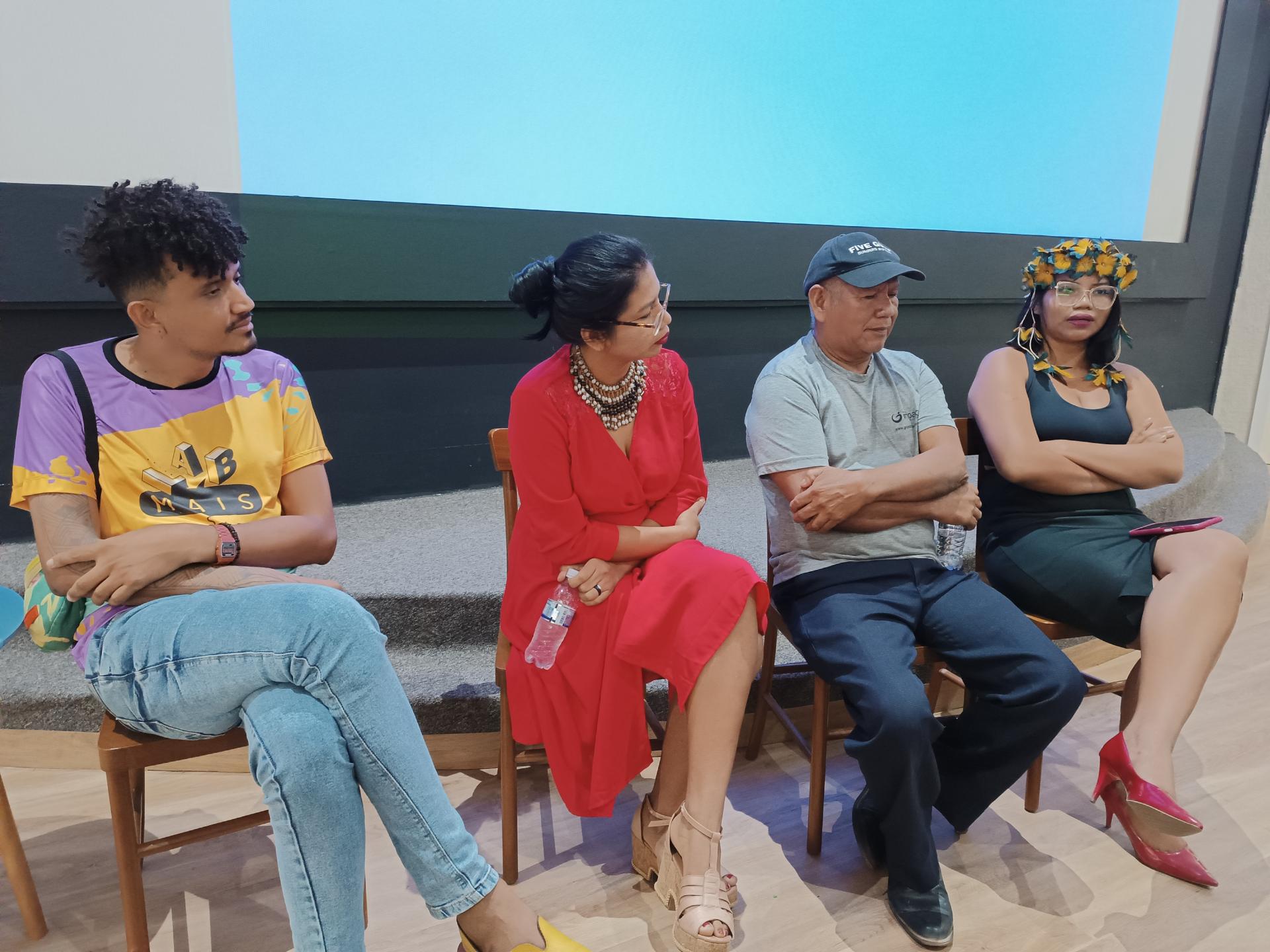
According to Jama, Indigenous literature has always been present in their understanding of the person, starting with their ancestors and forefathers. “Over time, I've come to understand that these are living narratives that perpetuate stories through orality, passed down by my father, a great storyteller. We actualize these words in our memory, linking the past to the present, to reinforce our identity and existence," she states.
